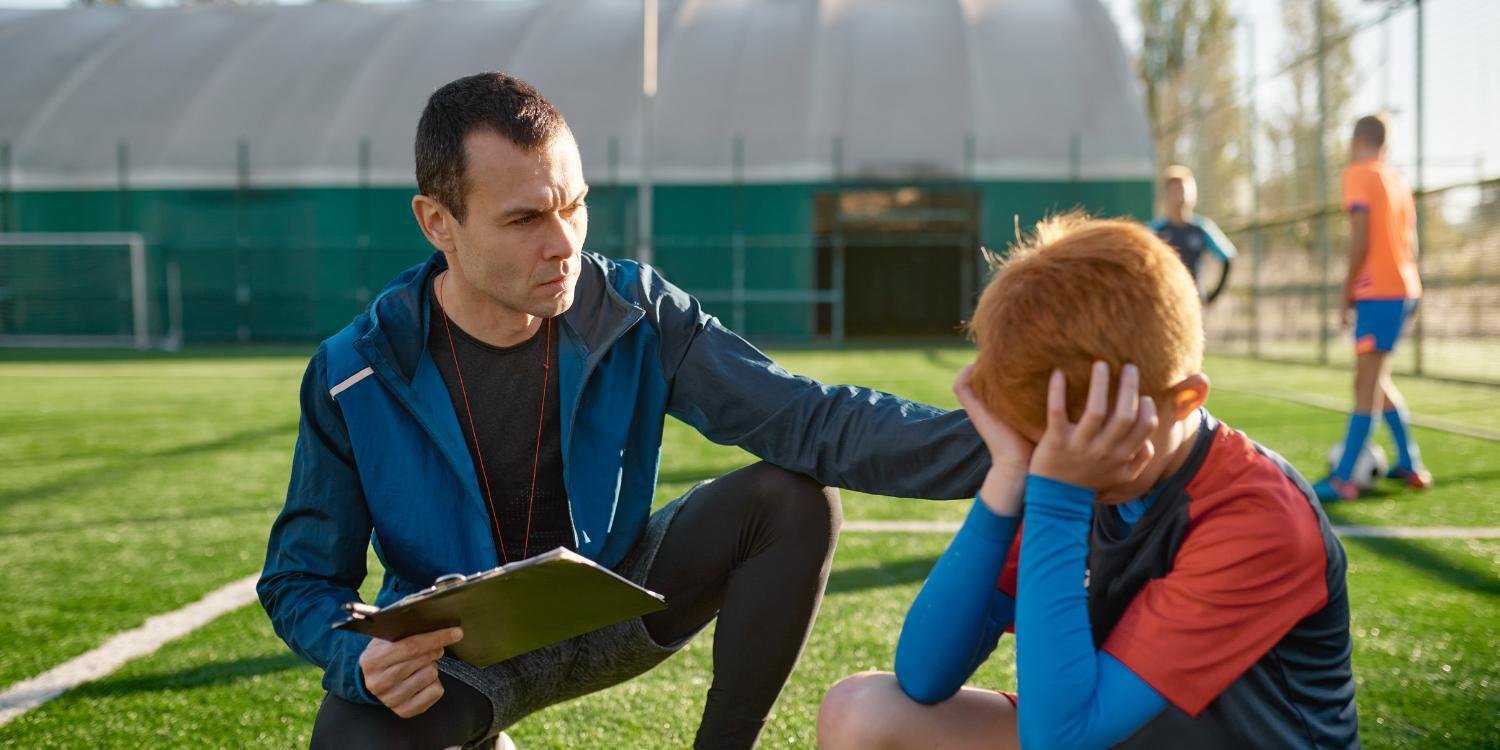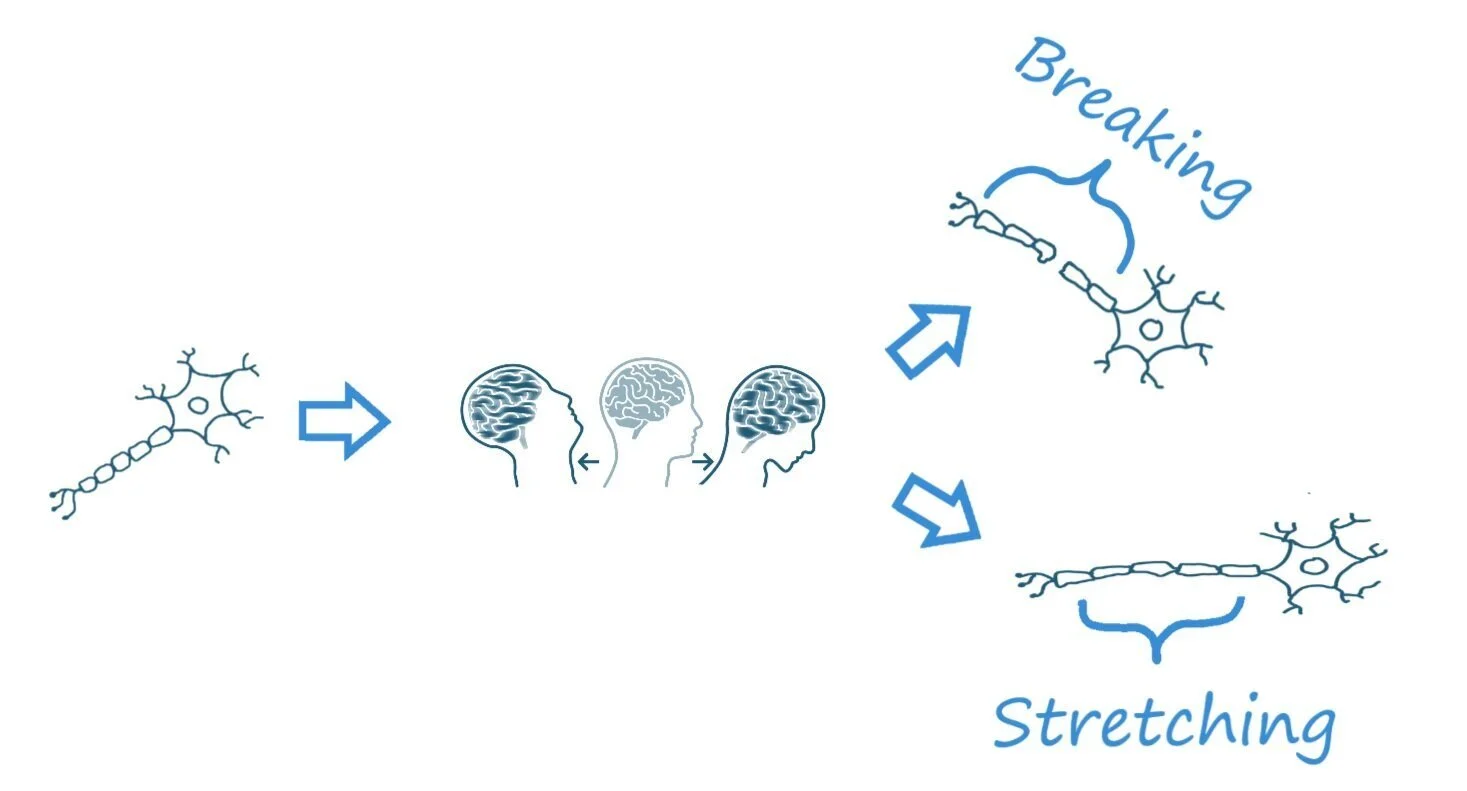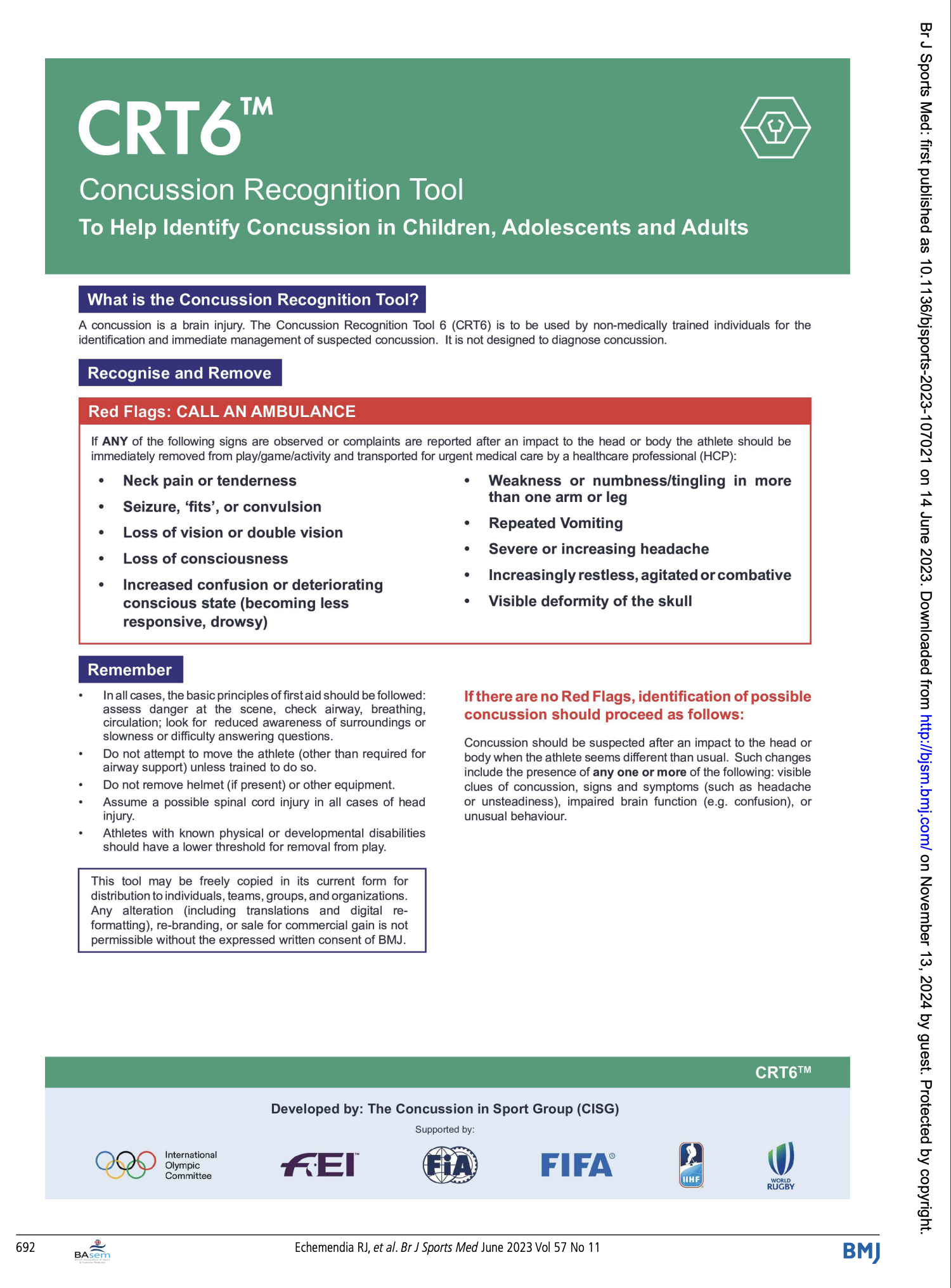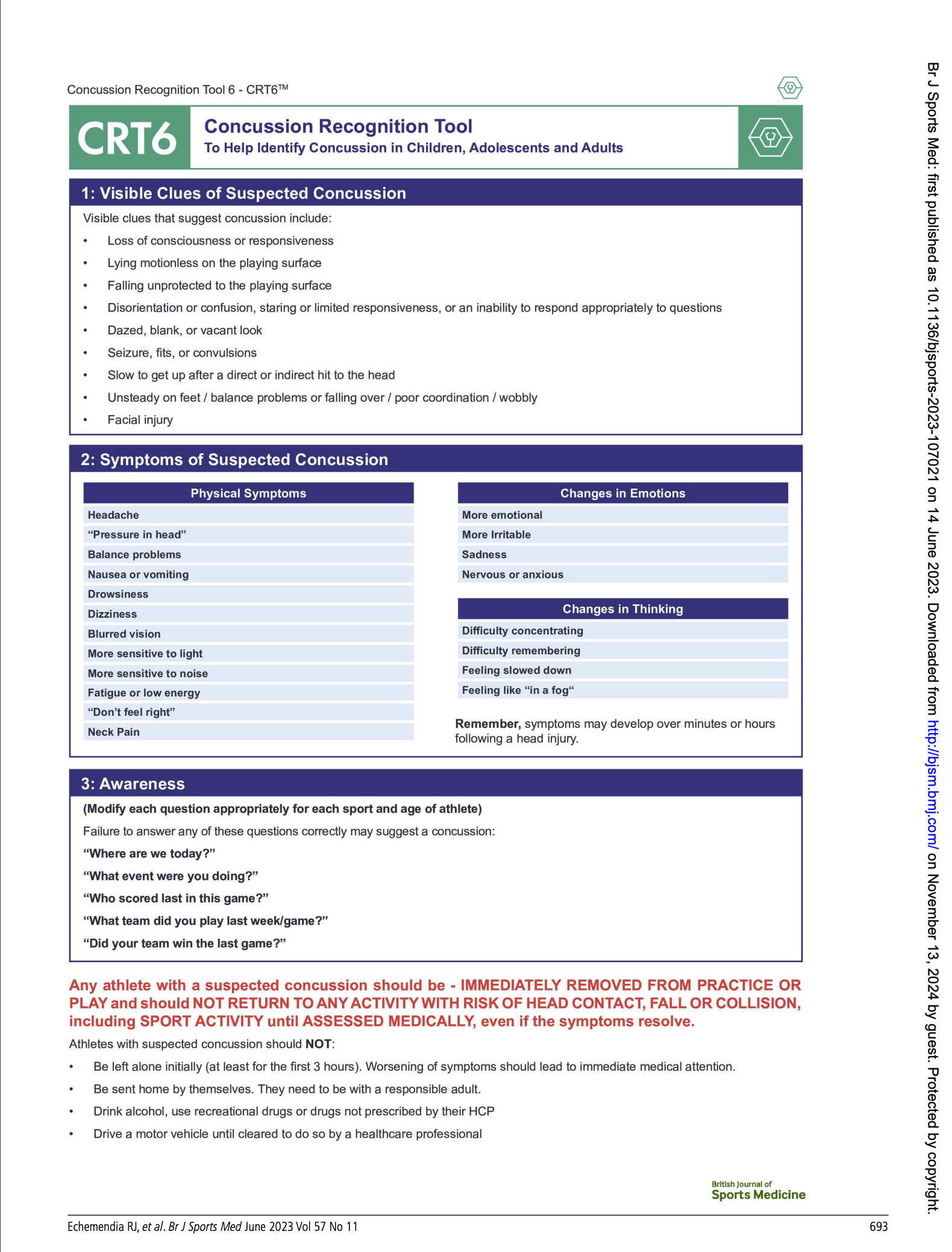
Immediate Care
For next steps, check out these resources:
If you suspect a concussion
What is a concussion?
A concussion is a form of traumatic brain injury caused by a blow, bump, or jolt to the head, neck, or body that sends an impulsive force to the brain, causing brain tissue to stretch, compress, and twist inside the skull.
This tissue movement causes temporary chemical changes in the brain and can damage brain cells—often on a level too small to see on tests like a CT scan. These chemical and physical changes cause symptoms that can affect how a person thinks, feels, acts, learns, and sleeps. Learn more at What Happens to Your Brain When You Get a Concussion?
What to do if you suspect a concussion
If you suspect a concussion, you should see a licensed medical provider within 24-48 hours.
It's essential to determine if the injury could be more serious– if you need to call 911 or go to the emergency department. See below for “red flag” symptoms.
Use the concussion identification app SCORE 4 Brain Health to help identify if there is a concussion. See below for the app.
Stop all activity that puts you at risk for a bump, blow, or fall. Remove the player from the game, don’t get back on the bike, etc. “When in doubt, sit it out.”
"Red Flag" symptoms
The injury could be more severe. Call an ambulance if there are any of these danger signs after an impact to the head or body:
Loss of consciousness
Increasing confusion or becoming drowsy and less responsive
Seizures/convulsions
Slurred speech
Severe or increasing headache
Weakness or tingling/burning in the arms or legs
Being increasingly agitated/combative
One pupil is larger than the other
Vision loss or double vision
Repeated vomiting
“Red flag” signs in children–call an ambulance:
Any of the adult danger signs
Will not stop crying and cannot be consoled
Will not nurse or eat
Concussion identification tools
The best tools for identifying a concussion are an app called the SCORE 4 Brain Health app and a PDF with a list of symptoms and questions called the Concussion Recognition Tool (CRT6).
Concussion identification app
We recommend the SCORE 4 Brain Health; download on (Apple Store or Google Play).
This app walks you through a series of questions that help identify a likely concussion. We find it more valuable than simply reading through a standard list of concussion symptoms.
After the app determines if there is a likely concussion, you can download a report with your answers to bring to a healthcare provider. The app then provides excellent, up-to-date advice for immediate concussion care. The app also has resources on how to manage concussion recovery.
Score 4 Brain Health was created by the Safe Concussion Outcome Recovery & Education (SCORE) Program at Children’s National Hospital and the Matthew Gfeller Center at UNC-Chapel Hill.
Concussion Recognition Tool (CRT6)
The Concussion Recognition Tool (CRT6) is a two-page PDF “to be used by non-medically trained individuals in the identification and immediate management of a suspected concussion. It is not designed to diagnose a concussion.” The CRT6 was written for individuals participating in sports but can be equally applied in non-sports situations. Click here or on one of the images below to download the CRT6 PDF.
Concussion symptoms
Some concussion symptoms may not appear immediately but may appear several hours to several days later.
Physical
Bothered by light or noise
Dizziness or balance problems
Feeling tired, no energy
Headaches
Nausea or vomiting (early on)
Vision problems
Thinking and remembering
Attention or concentration problems
Feeling slowed down
Foggy or groggy
Problems with short- or long-term memory
Trouble thinking clearly
Social or emotional
Anxiety or nervousness
Irritability or easily angered
Feeling more emotional
Sadness
Sleep
Sleeping less than usual
Sleeping more than usual
This list of symptoms is from the Centers for Disease Control. For additional signs of concussion in children, click here.
Avoid outdated advice
Friends and family often give problematic, outdated advice.
“Rest in a dark room during the day” actually slows recovery.
Many healthcare providers give outdated guidance that is not based on current best practices.
“Rest until symptoms resolve” slows recovery and increases risk of persisting symptoms.
Many healthcare providers don’t know:
* to refer patients for rehabilitative care if they have persisting symptoms.
* What type of specialist to refer to, and where.
See our Guidelines for Recovery to learn about current best practices to manage your recovery.
Relative rest for 24-48 hours and then gradually become more active
First 24-48 hours
Get checked by a qualified medical provider
Relative rest: light physical and cognitive activities. All activities should “not result in more than a brief and mild” worsening of concussion symptoms (See QR code for more details)
Reduce screen time (phone, laptop, etc) to a total of one hour per day for the first two days, then gradually increase as tolerated
Stay connected: visit friends in a calm environment; call friends, and family
Notify school or work that you have sustained a concussion
After 48 hours
Gradually increasing your physical activity promotes recovery
Start with mild-intensity physical activity, such as walking or cycling on a stationary bike, and avoid contact, collision, or fall risk
Return to work or academics gradually, with adjustments or accommodations
See our article Guidelines for Recovery, which goes over the recommended recovery options step by step.







